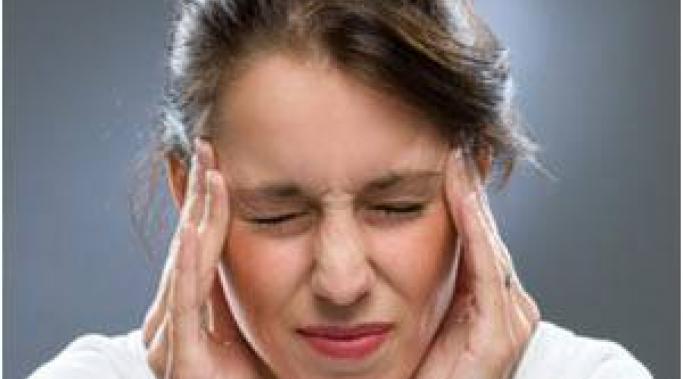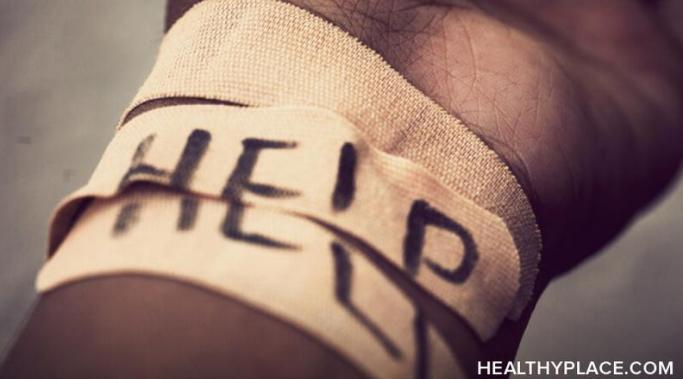I’ve always been cursed with really painful headaches and occasional dizziness. Typically, I try to push through the pain. However, recently I experienced the worst dizzy spell of my life, which sent me to the doctors. My whole body felt disoriented and my eyes were constantly in and out of focus. I felt nauseous and everything around me would not stop spinning, even when I closed my eyes.
This dreadful feeling reminded me of how our minds feel when we are trying to tell ourselves not to self-harm – our thoughts keep on spinning and twisting and all it leads to is pain.
Self-Injury Treatment
When it comes to counseling and therapy, almost everyone feels anxiety. Before stepping into an office for the first time, you feel unsure and stressed. Some people don’t think they need to be going to therapy and feel forced. Some people don’t believe that therapy will help and that it is simply a waste of time. Sometimes, it takes numerous sessions before any kind of opening up happens.
One thing that is concrete about therapy is that it never hurts to try.
I’ve never been a huge fan of running or lifting or going to a gym. For me, it takes a lot, and I mean a lot, of motivation to get my butt out of bed to work out for an hour. My family, on the other hand, almost obsesses with working out. Half of my relatives are P.E. teachers or Physical Therapists and have raced in half or full marathons. Many are now into CrossFit, which scares the living crap out of me.
During high school, when I was struggling with self-harm, I was a serious dancer. I went to a strict ballet school, which kept me busy almost every night of the week. It was good, staying fit and pushing my focus onto something else. However, when dancing I could not wear bracelets and no matter how much make-up I put on my scars, the sweat would eat it away.
Then, questions would be asked and lies would be spit out.
Finding healthy alternatives to self-injury can be stressful. Sometimes, it’s tough finding someone who understands the emotions and thoughts connected with self-harm. Many people hate thinking about counseling or talking about their self-harm because, well, it is too personal.
So, if you’re too nervous to jump into therapy or tell someone you self-injure, where can you go? What can you do?
Why not dive into a good book? A TV show? A movie?
Christie Stewart
This week, I'm focusing on healthy alternatives to self-injury as a followup to my previous article about using natural supplements to calm anxiety and self-injury urges.
Contrary to popular opinion, I do not believe that cathartic techniques suggested by many treatment centers, books and websites are beneficial to coping with self-injury urges. These techniques can include:
snapping a rubber band against the wrist
coloring on your arms with a red pen
holding an ice cube to your skin
hitting, punching or breaking items.
Christie Stewart
In my last video blog post, I explained how and why anxiety can lead to self-injury; how many people who suffer from anxiety often engage in self-harming behaviors in order to cope with their anxiety symptoms. In this video, I focus on natural vitamins and supplements you can use to combat your anxiety, and therefore lessen your urge to self-injure when triggered by anxiety and panic.
Christie Stewart
This week's topic coincides with last week's topic - safe self-injury alternatives. In this vlog, I talk about managing self-injury urges in a healthy way, by using impulse control logs specially designed by S.A.F.E. ALTERNATIVES®, the world-renowned self-injury treatment program.
Christie Stewart
When you've got an urge to self-injure, it's good to have an alternative list of healthy coping mechanisms to use. This helps you avoid physically harming yourself when dealing with dfficult emotions.
In this video blog, I discuss several healthy alternatives to self-injury behavior, and talk about some common controversial methods and whether I think they work or don't work to stop self-injuring.
Christie Stewart
If you pick up a book, or look up a website to read the facts about self-injury; you will often find that it is almost always linked to Borderline Personality Disorder. That's because people with BPD often act impulsively in a self-destructive way - generally through alcohol abuse, drug abuse, promiscuity, over spending and gambling or self-injury.
Christie Stewart
I have noticed that a lot of people think that only young adolescent, teenage girls self-injure. It's one of the most inaccurate stereotypes facing self-injurers. And I'm not the only one who feels this way. When I asked current self-injurers who visit my site what they thought the biggest misconception about self-injury was, a majority noted it was the perception that only teenagers self-injure.
As an adult, I can attest that adults self-injure, too - and, in this video blog, I aim to dispel that stereotype!





